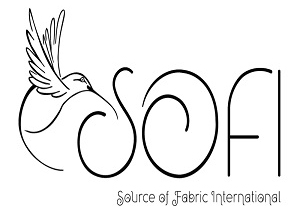If you’re looking to make a sustainable choice in your wardrobe or home, bamboo fabric is a fantastic option. Known for its softness and eco-friendly properties, bamboo fabric has gained popularity in recent years. But where can you find this versatile material?
You’ll be pleased to know that bamboo fabric is available at various retailers, both online and in-store. From specialty eco-friendly shops to larger online marketplaces, there are plenty of options to explore. Whether you’re after clothing, bedding, or even towels, knowing where to shop can make all the difference in your sustainable journey. Get ready to discover the best places to buy bamboo fabric and elevate your lifestyle with this luxurious and environmentally friendly choice.
Understanding Bamboo Fabric
Bamboo fabric is a textile made from the pulp of the bamboo plant. This eco-friendly material offers various benefits due to its sustainable production process and unique properties, making it popular in the fashion and home goods sectors.
What Is Bamboo Fabric?
Bamboo fabric originates from the bamboo plant, known for its rapid growth and renewable nature. The process begins by breaking down bamboo stalks into a pulp, then spinning the pulp into fibers. These fibers can be woven or knitted into fabric. You find two primary types of bamboo fabric: bamboo viscose, produced through chemical processes, and bamboo linen, created using a mechanical process that retains more natural properties. Both types have characteristics that appeal to consumers seeking conscious materials for clothing and home textiles.
Benefits of Bamboo Fabric
Bamboo fabric offers numerous benefits. First, it exhibits excellent moisture-wicking properties, keeping you dry and comfortable. Second, it provides natural UV protection, helping safeguard your skin from harmful rays. Additionally, bamboo fabric is soft and smooth, akin to silk, making it an ideal choice for clothing and bedding. Its antimicrobial properties reduce odor and bacteria growth, contributing to longer-lasting items. Finally, bamboo cultivation requires significantly fewer pesticides and water than cotton, promoting environmental sustainability.
Where to Buy Bamboo Fabric
Finding bamboo fabric has become simpler with numerous options available. Various retailers offer bamboo fabric both online and in physical stores.
Online Retailers
Amazon offers a wide selection of bamboo fabric in different forms, including sheets and clothing. The platform’s customer reviews help you assess quality before making a purchase.
Etsy features handmade and unique bamboo fabric items from independent sellers. Shopping on Etsy provides options for custom pieces and supports small businesses.
Fabric.com specializes in fabric supplies, including a variety of bamboo fabrics suitable for various projects. You can find both bamboo viscose and linen options.
Joann carries bamboo fabric in-store and online, catering to craft enthusiasts. Their inventory includes different colors and patterns suitable for home goods and clothing.
Spoonflower allows you to find custom prints on bamboo fabric. Users can create unique designs, making it an appealing choice for personalized projects.
Opting for these online retailers helps you access diverse options that meet your specific needs for bamboo fabric.
Local Stores
Finding bamboo fabric in local stores provides a convenient way to explore and purchase this eco-friendly material. Many retailers cater to sustainable living enthusiasts by stocking bamboo fabric options.
Craft Stores
Craft stores often feature a range of bamboo fabric choices. Notably, these stores supply materials ideal for DIY projects, quilting, and garment making. Stores like Michael’s and Hobby Lobby typically offer bamboo blends, suitable for creating soft apparel and home goods. In addition to pre-cut fabric, these shops might carry bamboo yarn, enabling you to knit or crochet items with this sustainable material. Visiting craft stores allows you to touch and feel the fabrics, ensuring the quality meets your expectations.
Fabric Supply Stores
Fabric supply stores provide a more extensive selection of bamboo fabric compared to craft stores. Stores like Joann and Hancock Fabrics specialize in fabric options, including bamboo viscose and bamboo linen. These retailers often have fabric sections dedicated to eco-friendly materials, helping you find exactly what you need for various projects. Additionally, knowledgeable staff can offer advice on fabric suitability for different applications, such as clothing or home décor. Fabric supply stores frequently run promotions, making it easier to stock up on bamboo fabric while staying on budget.
Eco-Friendly Shops
Find eco-friendly shops that specialize in sustainable fabrics like bamboo. These shops often focus on selling materials that support green living and ethical practices.
Local Eco-Friendly Stores
- Fabric stores: Check local fabric stores that emphasize organic and sustainable options. These stores commonly stock bamboo fabric alongside other eco-friendly materials.
- Craft stores: Visit craft stores dedicated to sustainable supplies. Many craft shops aim to provide environmentally friendly choices, including bamboo fabric and bamboo yarn.
- Health and wellness retailers: Explore wellness shops that offer bamboo clothing. These items often emphasize health benefits and sustainable practices.
Online Eco-Friendly Retailers
- Etsy: Browse Etsy for independent sellers offering bamboo fabric. Many sellers focus on eco-friendly practices and provide unique options.
- Green fabric sites: Search for websites specializing in green fabrics. Suppliers may offer a variety of bamboo fabric options, often made from sustainable resources.
- Amazon: Use Amazon to find a wide range of bamboo fabric. Sellers provide multiple choices that cater to different project needs, including clothing and home goods.
Specialty Bamboo Shops
- Bamboo-specific retailers: Look for online stores dedicated to bamboo products. These retailers often focus on high-quality bamboo fabric and related items.
- Textile boutiques: Explore small textile boutiques that carry bamboo fabric. These shops often stock unique and premium fabric types perfect for various projects.
Tips for Shopping
- Check certifications: When buying bamboo fabric, check for eco-certifications. Certified products often meet sustainability standards, ensuring a quality purchase.
- Compare prices: Always compare prices across different shops. Finding the best deal on bamboo fabric can help save money while supporting sustainable choices.
- Read reviews: Read customer reviews when shopping online. Reviews provide insights into the quality of fabric and seller reliability.
Explore these eco-friendly shops to find quality bamboo fabric while supporting sustainable practices.
Factors to Consider When Buying Bamboo Fabric
When selecting bamboo fabric, several key factors influence your decision. Each consideration impacts the quality and suitability for your needs.
Quality and Certifications
Evaluate the quality of bamboo fabric before making a purchase. Look for certifications such as Oeko-Tex Standard 100 or Global Organic Textile Standard (GOTS). These certifications indicate that the fabric meets safety and environmental standards. Examine the material type as well. Bamboo viscose typically offers a softer, silk-like feel, while bamboo linen presents a more textured finish. Inspect the thread count; a higher count often means better durability and comfort. Read product descriptions carefully to ensure you choose the right quality for your intended use, whether for clothing or home textiles.
Pricing
Consider the pricing of bamboo fabric options. Prices vary widely based on factors such as quality, type, and retailer. Compare prices across different stores, both online and physical, to find the best deal. Remember that higher-quality materials may come at a premium. However, investing in better fabrics usually results in longer-lasting items. Check for sales or special promotions at local fabric shops or online marketplaces to save money. Be mindful of shipping costs when shopping online; these can add to your overall expenditure.
Color and Patterns
Select colors and patterns that fit your style and project requirements. Bamboo fabric comes in various colors from natural shades to vibrant hues. Specify the intended purpose of your fabric, as different projects may require different aesthetics. Look for patterns that match your design vision. Many retailers offer prints ranging from floral to abstract designs. Review swatch samples if available; this helps you visualize how the fabric looks in person. Ensure that the colors and patterns align with your design preferences or overall decor.
How to Identify Genuine Bamboo Fabric
Identifying genuine bamboo fabric involves specific checks that ensure authenticity and quality.
Checking Labels and Certifications
Inspect labels on bamboo fabric products for clear identification. Look for terms like “100% bamboo” or “bamboo viscose” to confirm fabric content. Certifications such as Oeko-Tex Standard 100, Global Organic Textile Standard (GOTS), or USDA Organic signify that the fabric met strict environmental and safety standards. These labels ensure that the bamboo is processed without harmful chemicals and confirms sustainability practices. Avoid products without labels, as they may not be genuine bamboo or might contain blends that reduce quality. Checking multiple brands can guide a purchase decision. For example, a product labeled “bamboo rayon” may indicate processing methods that influence its eco-friendliness. Before buying, compare certifications across various products to ascertain quality.
Conducting a Burn Test
Performing a burn test helps determine fabric authenticity. Take a small thread from the fabric to test. Light the thread with a lighter or match. Genuine bamboo fabric ignites quickly and gives off a mild, paper-like smell, similar to burning leaves. As it burns, it should turn to ash rather than leaving hard remnants. Synthetic fabrics, such as polyester and nylon, tend to melt and emit a harsh, chemical odor. If the fabric smells like burning plastic or melts into a bead, it is not genuine bamboo. Using caution during this process is essential. Do not burn large pieces or conduct the test near flammable materials. This test provides a straightforward method to confirm fabric authenticity without reliance on labels alone.
Tips for Buying Bamboo Fabric
Bulk Purchasing Options
Buying bamboo fabric in bulk can save money and ensure access to larger quantities for projects. Look for wholesalers or textile suppliers that specialize in bamboo fabric. These suppliers often provide discounted rates on bulk orders. For example, online platforms like Fabric.com or Etsy sellers may offer bulk discounts when purchasing several yards. Compare prices across different suppliers to find the best deal. Request samples if available to assess the quality before committing to larger purchases. Plan the quantity required to avoid excess fabric that may go unused.
Buying Second-Hand Bamboo Fabric
Purchasing second-hand bamboo fabric presents an eco-friendly alternative that benefits the wallet and the environment. Explore options at thrift stores, consignment shops, and fabric swap events. Online marketplaces like eBay and Facebook Marketplace can also yield unique finds. Ensure that the fabric is in good condition by checking for tears, stains, or odor. Look for listings that provide clear descriptions and images for better evaluation. Establishing a relationship with local fabric stores may also uncover hidden second-hand fabric gems. Prioritize the quality and usability of the fabric regardless of its age.
Common Issues When Buying Bamboo Fabric
Buying bamboo fabric presents certain challenges that can affect your purchasing experience. Understanding these common issues helps you make informed choices.
Misleading Fabric Labels
Misleading fabric labels frequently create confusion among shoppers. Labels that claim to be “bamboo” may include blends with synthetic materials. Avoid fabrics marketed simply as “bamboo fibers” without proper certification. Look for terms like “bamboo viscose” or “100% bamboo” to ensure authenticity. Certifications like Oeko-Tex Standard 100 or GOTS indicate the fabric meets environmental and safety standards. Examine product descriptions thoroughly. Sellers may use vague language that does not clarify the actual composition. Being vigilant protects you from purchasing lower-quality fabrics.
Maintain awareness of brands and retailers known for transparency. Research customer reviews to evaluate other buyers’ experiences with the fabric’s quality. Fabric quality directly impacts durability and comfort, making correct labeling crucial for your satisfaction. If in doubt, reach out to sellers for clarification regarding fabric content. This proactive approach helps ensure you receive genuine bamboo fabric.
Inconsistent Quality
Inconsistent quality often occurs with bamboo fabric, depending on production methods and sourcing. Different manufacturers may use varying processes that affect softness, durability, and overall performance. High-quality bamboo fabric delivers softness akin to silk while lower qualities may feel coarse and less comfortable. To avoid disappointment, pay attention to the fabric’s thread count and material type.
Seek out retailers with well-established reputations for quality control. Look for reviews and ratings specifically addressing the fabric’s texture and durability. Additionally, order swatch samples when possible to evaluate the fabric firsthand before committing to a larger purchase. This approach provides a better sense of the fabric’s characteristics and ensures it meets your expectations. Always compare multiple options to find bamboo fabric that consistently aligns with your quality standards across different providers.
Conclusion
Finding high-quality bamboo fabric has never been easier with the variety of options available both online and in local stores. By exploring eco-friendly retailers and specialty shops you can support sustainable practices while enhancing your wardrobe or home.
Always check for certifications to ensure you’re purchasing genuine bamboo fabric. Don’t hesitate to compare prices and read customer reviews to make informed choices. Whether you’re working on a DIY project or looking for comfortable clothing bamboo fabric is an excellent choice that combines style with sustainability. Embrace the softness and eco-friendly benefits of bamboo fabric and enjoy your shopping experience.
Frequently Asked Questions
What are the benefits of bamboo fabric?
Bamboo fabric is known for its softness, moisture-wicking properties, and natural UV protection. It’s also antimicrobial, helping to reduce odors and bacteria growth. Additionally, bamboo grows quickly and requires less water and pesticides compared to traditional fabrics like cotton, making it an eco-friendly choice.
Where can I buy bamboo fabric?
You can find bamboo fabric at both online and physical retailers. Popular online options include Amazon, Etsy, Joann, and Fabric.com. For local shopping, craft stores like Michael’s, Hobby Lobby, and various fabric supply stores often have a selection of bamboo fabrics available.
What types of bamboo fabric exist?
There are primarily two types of bamboo fabric: bamboo viscose and bamboo linen. Bamboo viscose is soft and smooth, while bamboo linen has a more textured feel. Both types offer unique benefits and can be used for various clothing and home goods.
How do I identify genuine bamboo fabric?
To ensure you have authentic bamboo fabric, look for labels stating “100% bamboo” or “bamboo viscose.” Check for eco-certifications like Oeko-Tex Standard 100. You can also perform a burn test: genuine bamboo will burn cleanly and smell like burnt paper, unlike synthetic fibers.
Why should I consider eco-friendly certification?
Eco-friendly certifications, such as GOTS or Oeko-Tex, ensure that the fabric meets specific environmental and safety standards. These certifications guarantee that the bamboo fabric is produced sustainably, impacting both your health and the environment positively.
What should I look for when buying bamboo fabric?
When buying bamboo fabric, consider the quality by checking certifications, thread count, and material type. Compare prices across different retailers and think about your project’s color and pattern needs. Swatch samples can help you visualize the fabric before purchasing.
Are there any common issues with buying bamboo fabric?
Yes, common issues include misleading labels that may suggest blends with synthetic materials and inconsistent quality between manufacturers. Research brands, read customer reviews, and pay attention to certifications to avoid these problems and ensure a quality purchase.


